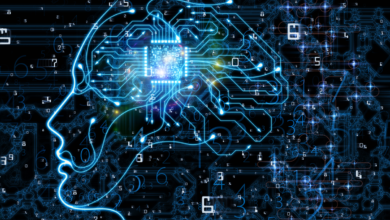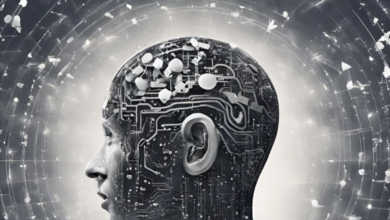According to a study conducted by the University of Maryland, a cybercrime is committed on average every 39 seconds. With the recent increase in online scams and digital fraud, cybersecurity has become a priority for many daily internet users.
When we talk about advanced cybersecurity, there is no more effective method of improving security than AI and machine learning. Utilizing highly accurate data allows these machine learning programs and AI algorithms to optimize cybersecurity systems and improve our data loss prevention capabilities. But with these new innovations comes a distinct set of advantages and disadvantages.
Privacy Considerations for AI
Artificial intelligence does raise concerns for those who don’t wish to expose their systems to an AI algorithm. For these programs to work at maximum efficiency, they need to utilize a complete set of data. Without full access they may mistake administrators, employees, and clients for scammers; this could block or bar them from using certain systems and cost your company money. That being said, AI still has a variety of advantages that can improve current cybersecurity methods.
Advantages of AI in Cybersecurity
AI-powered cybersecurity systems have a wide range of uses, including:
· Faster Behavioral Analysis: By tracking the conduct of users and categorizing what actions can be considered malicious, AI systems can help identify dubious behaviours. Once it has learned what actions could constitute unusual or fraudulent system access, it can automatically alert a company at a much faster speed than older cybersecurity systems.
· Rapid Intrusion Detection: Any unauthorized access or activity on your digital systems could indicate a network intrusion is taking place. With traditional cybersecurity, hackers may be able to trick your network into believing the activity is legitimate, which could allow cyber criminals to steal valuable information. With AI systems, these intrusions would be detected almost instantaneously, allowing for a much faster response.
· Better Fraud Identification: Given enough time, AI will learn the difference between legitimate customer behaviors and the actions of cybercriminals. As these systems learn and grow, they can begin to identify fraud in real-time. This early fraud detection capability means that your company will have far better data loss prevention.
· Advanced Network Risk Assessment: While we would ideally want every threat to be dealt with immediately, risk assessment is often necessary to organize the severity of threats. AI systems can use data to see what threats are a priority, and analyze the aftermath to see which parts of your network are most vulnerable to attack.
Downsides of AI in Cybersecurity
AI isn’t without its downsides. Utilizing AI algorithms in cybersecurity does have several cons, including:
· Higher Resource Requirements: AI systems usually require a higher level of computing power and programs utilizing these algorithms will usually cost quite a bit more than traditional cybersecurity systems. AI also takes time to learn about your network and users, and may not be a good fix if you need instant results.
· Overestimation of Protection: Because of the pedestal many put artificial intelligence upon, it’s easy to get complacent when you are using an advanced cybersecurity system. Regular maintenance and human intervention are still required when using AI, and neglecting to do so opens you up to the risk of fraud.
· AI in Cybercrime: Unfortunately, cybercriminals have access to the same AI you do. This means that they can use AI systems against you, and could use the information your AI has gathered to penetrate your network with ease. As cybersecurity methods become more advanced, this will cease to be an issue. But for now, improperly utilized AI could actually put your company at a higher risk for fraudulent activity.
Machine Learning in Cyber Security
Machine learning allows for better pattern analysis and can help your cybersecurity programs learn and adapt to network intrusions. It simplifies the process while increasing optimization, primarily through the process of data collection and task automation. By imitating then improving on our behavior, these machine learning programs can deal with cybersecurity issues more effectively than a human user ever could.
Automating Tasks
One of the biggest advantages of machine learning is its ability to automate cybersecurity tasks. The number of daily tasks that security teams deal with is staggering, with many being painfully repetitive. Most of these tasks can be accomplished with the right machine learning software, saving businesses time and lowering the cost of labor. Automation also simplifies numerous cybersecurity actions, making them easier to utilize and lowering the rate of successful cyberattacks.
Planning Your Implementation
Unlike with traditional cybersecurity programs, those using machine learning need time to collect data and establish their security protocols. A program will need to “train” itself by gathering data from across your network; it will then work through the process of pattern analysis to help it identify friend from foe and legitimate access from malicious intrusion. While these systems may take longer to reach their full potential, they often have far more advanced defense capabilities as a result.
AI and Machine Learning are the Future, But not Infallible
While it can’t be denied these techniques are powerful, they are by no means a magic bullet. It’s crucial to remember that, while cybersecurity technology is constantly evolving and improving, these innovations are only as good as the engineers who create them.
With all new technology comes a lag in expertise, and it will take time for AI cybersecurity to become fully adopted within the digital realm. Once they become more established, we will hopefully enter a new age of secure internet usage and data loss prevention.





